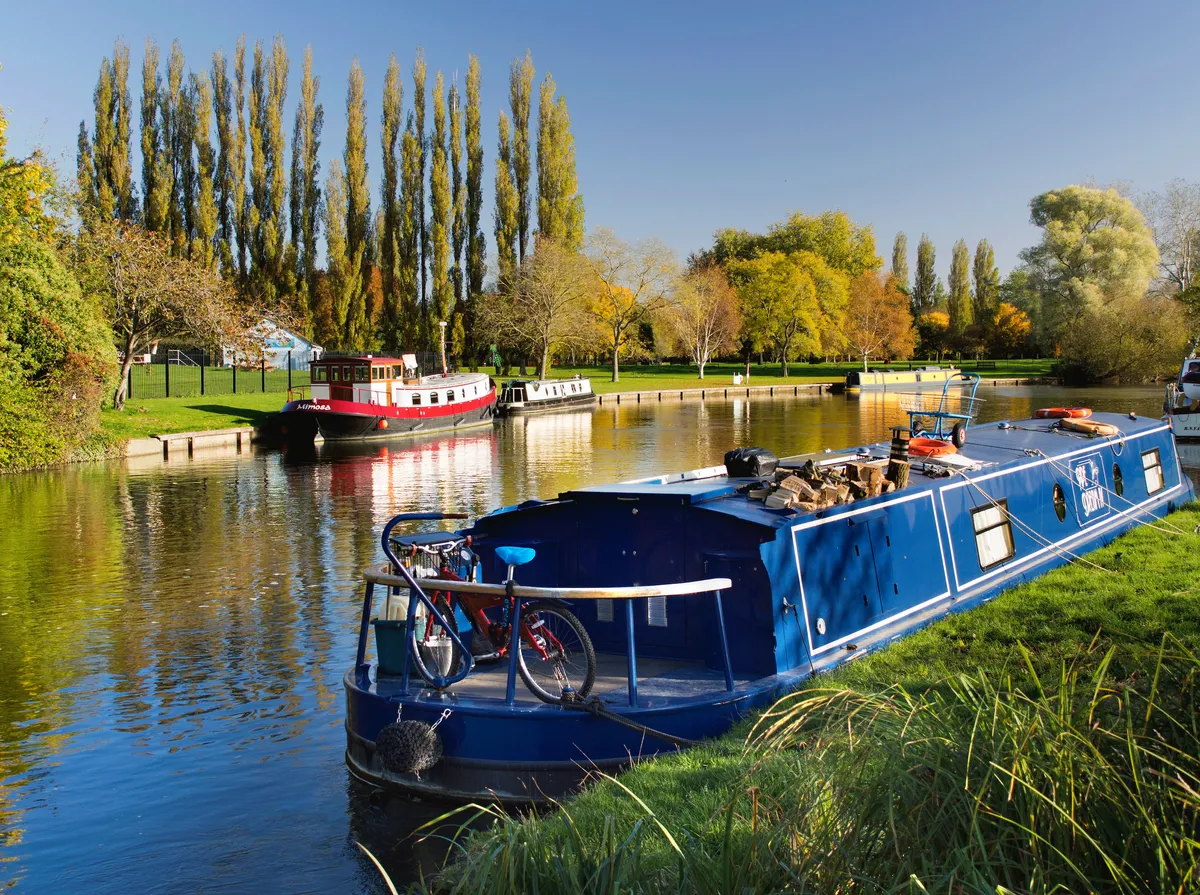Bustling, historic Abingdon-on-Thames has several striking claims to fame. A strong contender for the title of England’s oldest town, it also has one of the country’s oddest traditions; ‘Bun Throwing’ is how Abingdonians have celebrated significant royal occasions for the past 400 years.
If you’re happy simply to eat your baked goods, then head to Added Ingredients in Stert Street for supplies, including breads, pies, cheese, meat, olives and organic wines.

Meadows to marina
Leave town via the romantic Victorian Abbey Gardens. Little remains of the town’s medieval abbey itself, but its impressive Long Gallery survives. Then follow your nose to the Thames and lay out your spread on family-friendly Abingdon Meadows.
Lunch done, proceed to Abingdon Lock itself, crossing at the weir. Turn back along the Thames Path to pass medieval Abingdon Bridge and Abingdon Marina. Here, brightly coloured boats vie with abundant swans, which serve as a reminder of another local custom, swan-upping – the practice of catching and marking swans on the Thames.

Thames path
Where the path branches, you can turn left to visit Culham with its picturesque medieval bridge. Visit the village’s manor with its 17th-century dovecote, and, at the end of the green, the parish church of St Paul.
Return to the river and follow the path along pretty field edges until you come to Culham Cut. Here, cross right over the bridge, then follow the footpath to Sutton Courtenay.
Village finale
After crossing the footbridge into the village, turn right and pause on Church Street to admire The Wharf. This Grade II-listed house was the former country residence of prime minister HH Asquith. Further on you’ll find All Saints’ parish church, where Asquith is buried. The churchyard is also the last resting place of author George Orwell. Take a breather and some refreshment at one of the village’s pubs, before retracing your steps.
Round off your day with a short tour of Abingdon’s many architectural gems, not least the 17th-century county hall (“exceedingly handsome” according to poet John Betjeman); the Long Alley Almshouse, and St Helen’s Church, famous both for the paintings that adorn the ceiling of its Lady Chapel and its shape – with no fewer than five aisles, it’s wider than it is long.
Map
Click on the map below for an interactive version of the route.

